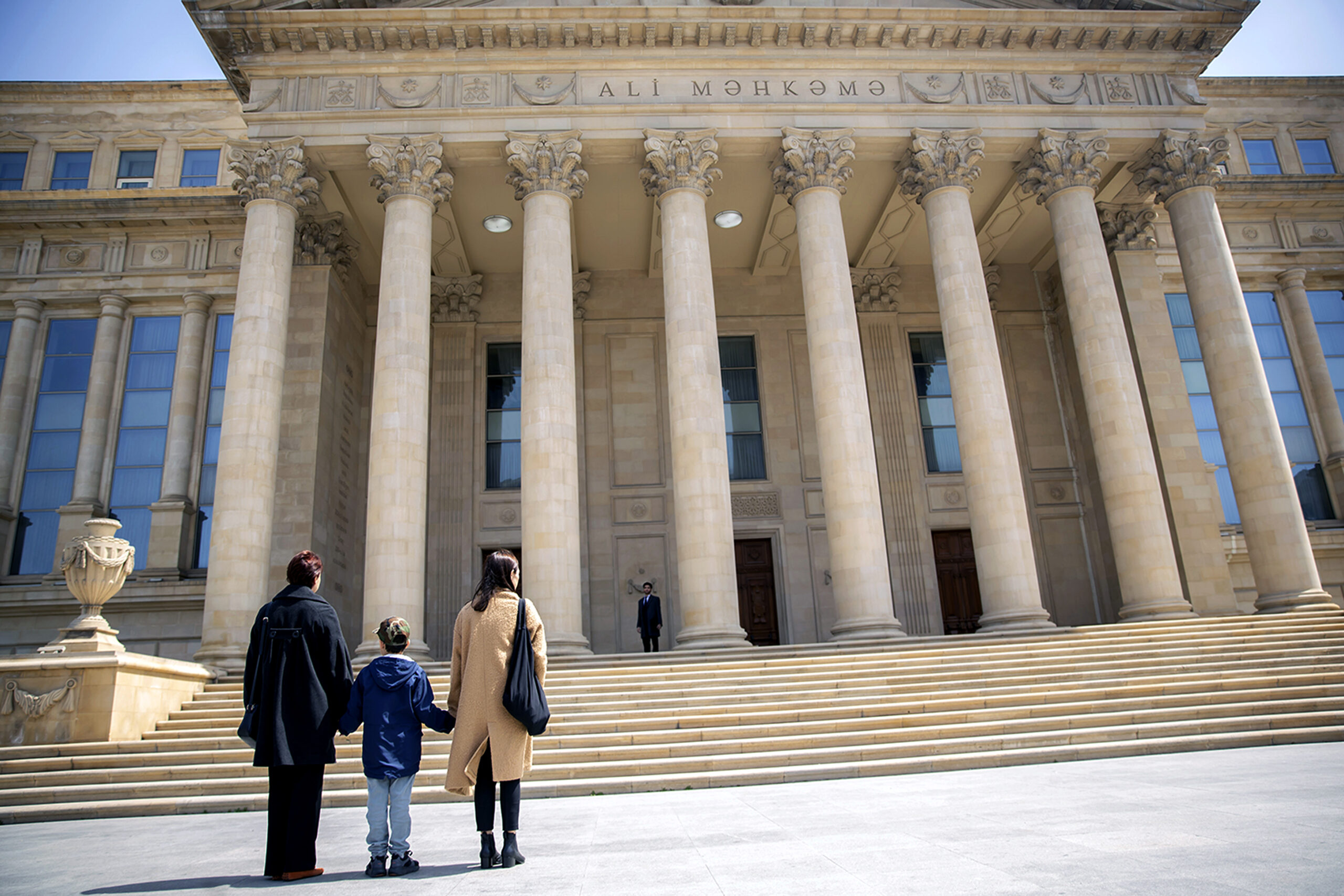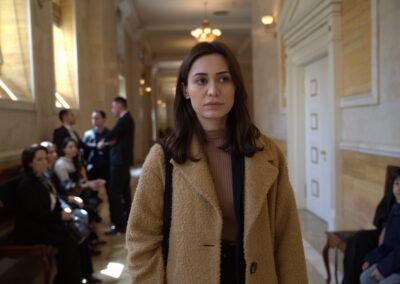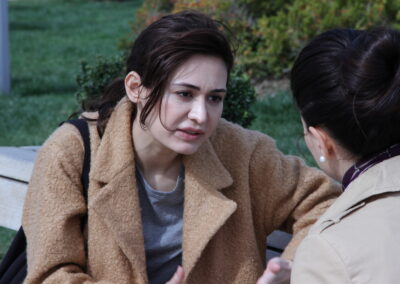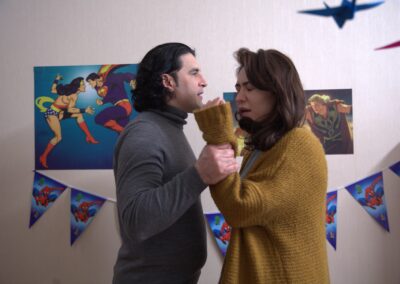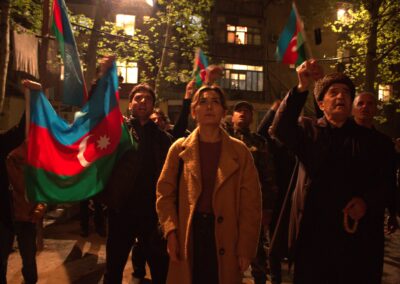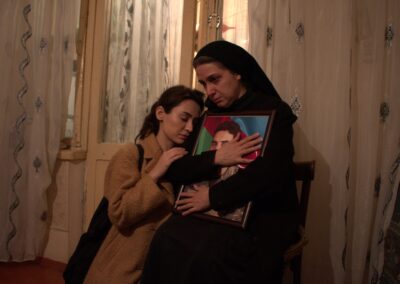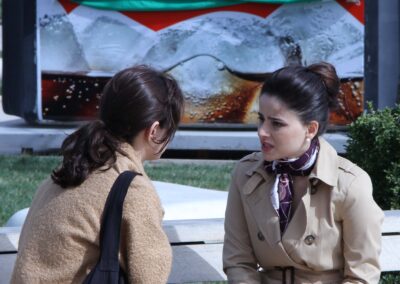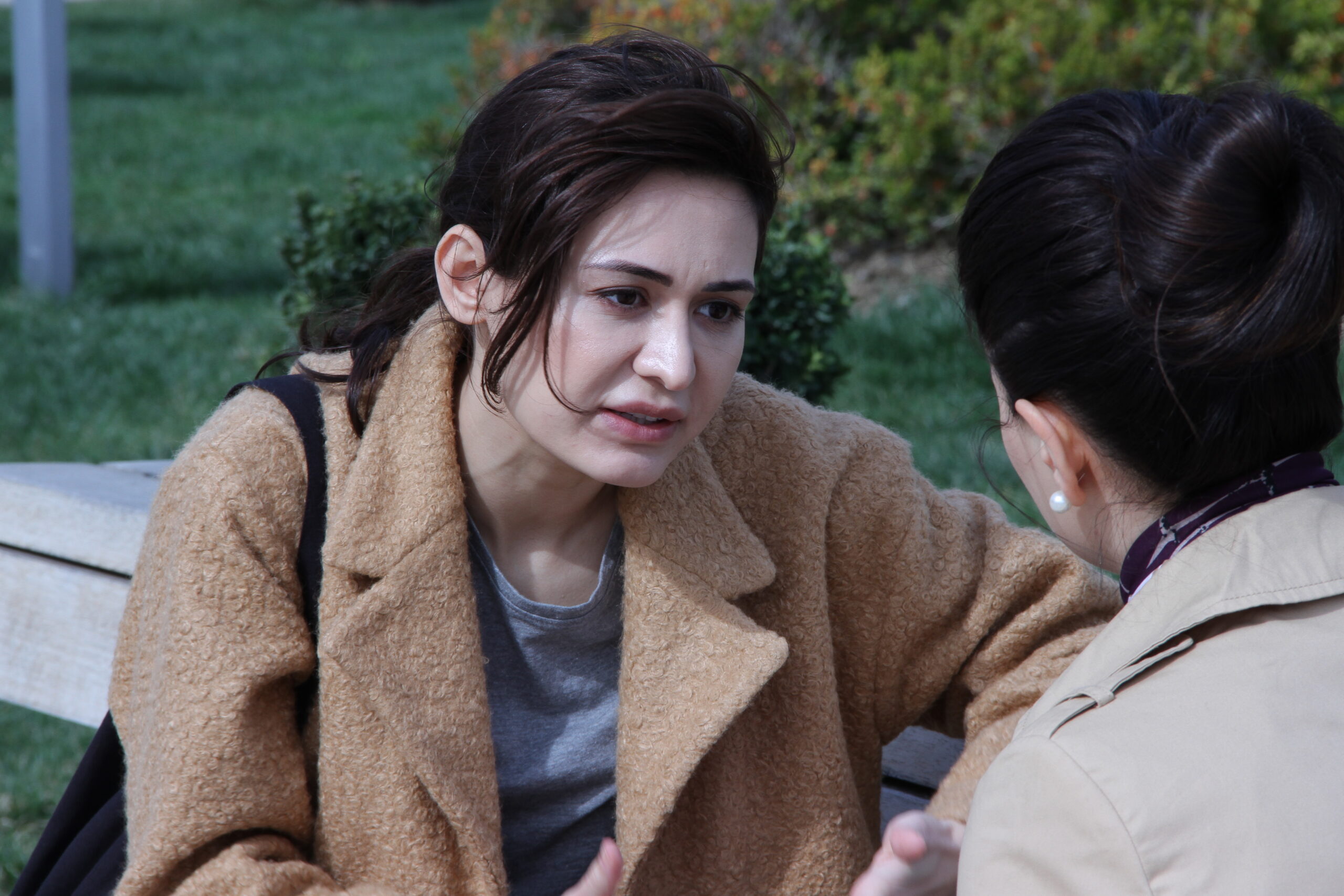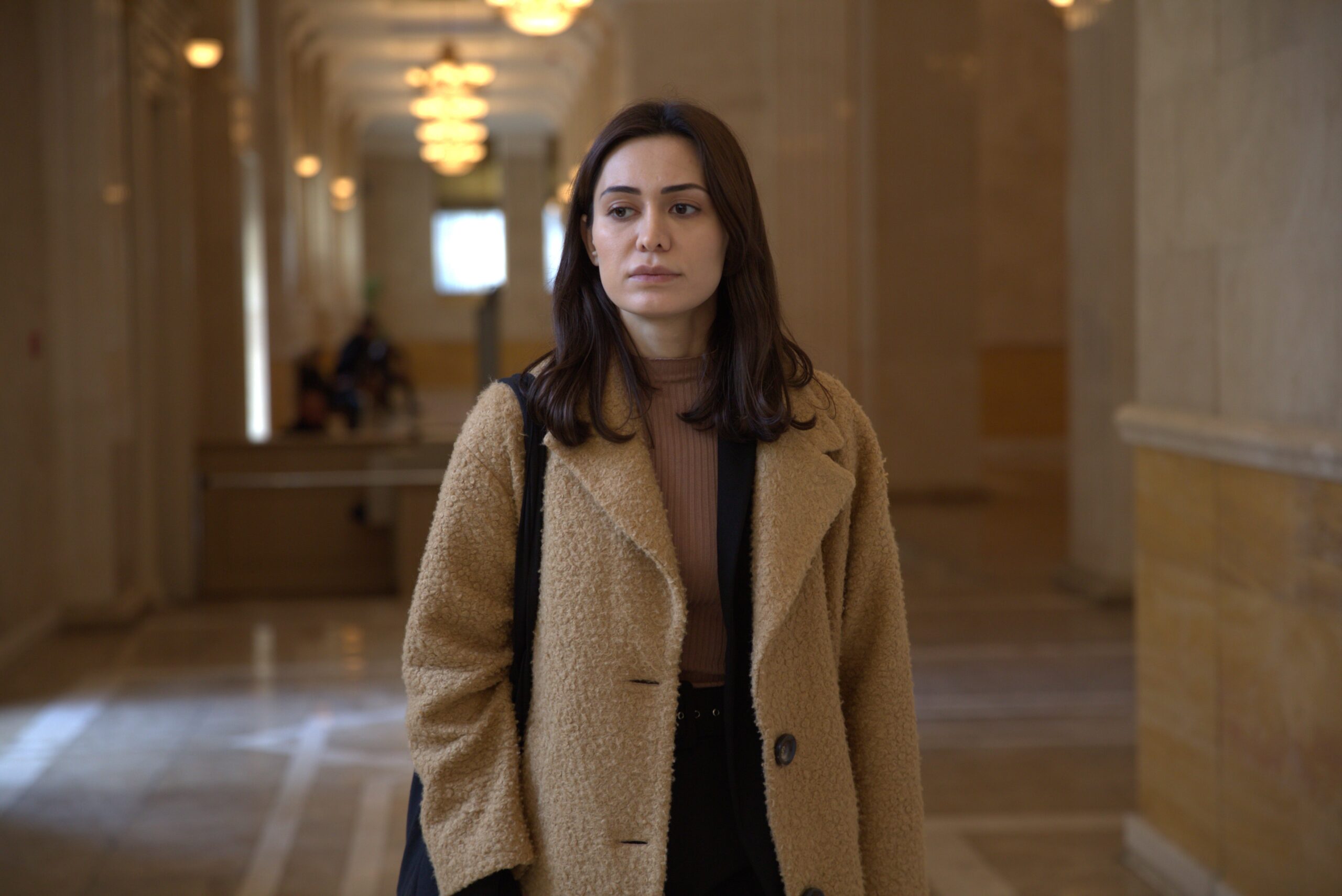
banu
Color, 16:9, 90min, 2022, Azerbaijan, Italy, France, Iran
Synopsis
While the Second Nagorno-Karabakh war rages on far away from Baku, Azerbaijan, Banu has four days to find someone to support her in court against her influential ex-husband, Javid. He is trying to get full custody of their son Ruslan by claiming that Banu suffers from psychiatric issues. Banu embarks on a journey to find someone to help her in a society in which everyone’s attention is preoccupied with the ongoing war.
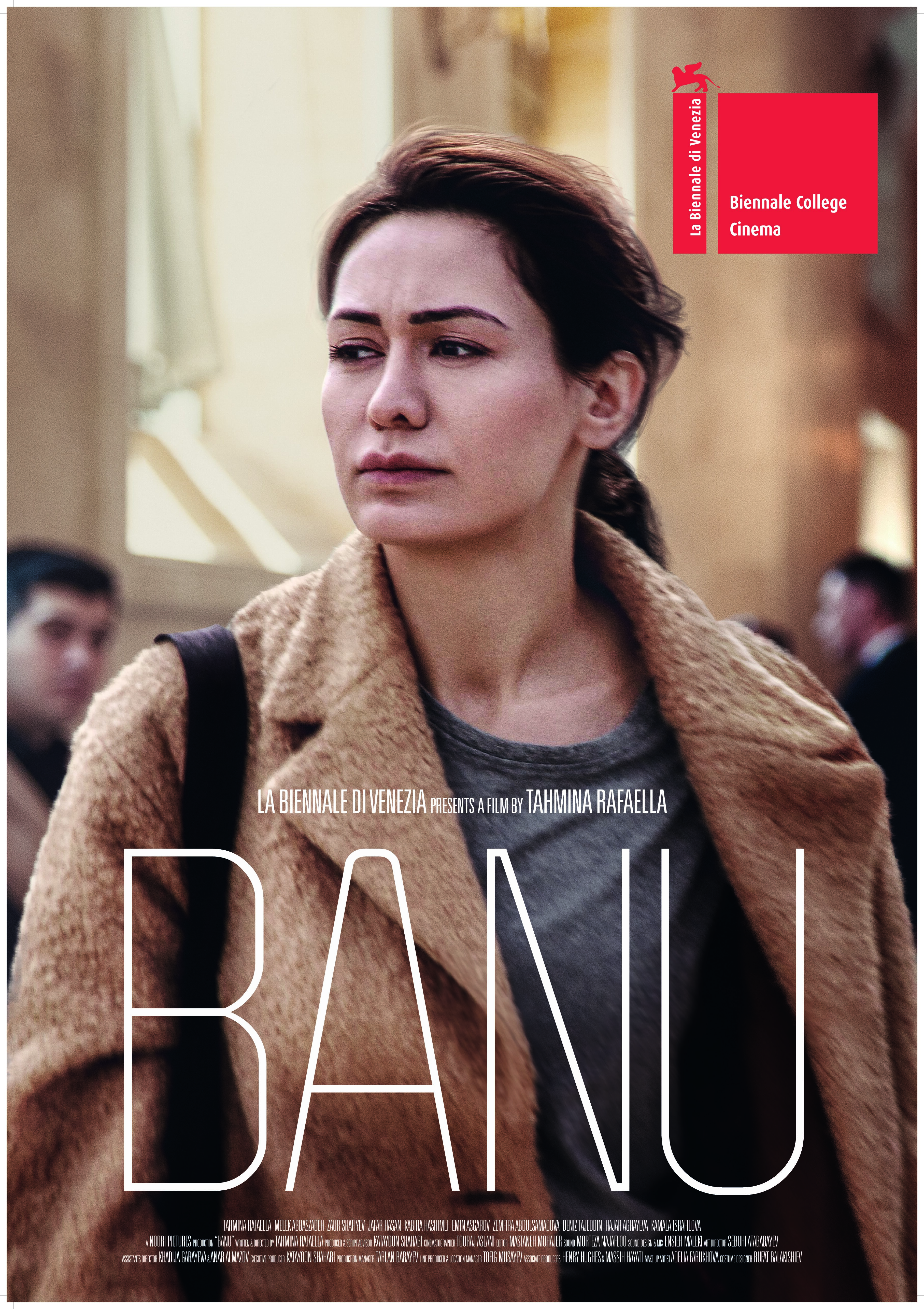
Cast & Crew
Director & Scriptwriter Tahmina Rafaella
Script Writers Katayoon Shahabi
Director of Cinematography Touraj Aslani
Editors Mastaneh Mohajer
Sound Mix Ensieh Maleki
Sound Morteza Najafloo
Music Composer Saba Nedaei
Production Manager Sebuhi Atababayev
Costume designer Rufat Balakishiyev
Cast Tahmina Rafaella (Banu), Melek Abbaszadeh (Mahira), Zaur Shafiyev (Javid), Jafar Hasan (Taleh), Kabira Hashimli (Farida), Emin Asgarov (Ruslan)
Production Company Noori Pictures
DIRECTOR’S Statement
Being Azerbaijani means knowing someone who was personally affected by the First or Second Nagorno-Karabakh war, and it also means knowing someone who was affected by a bitter divorce in which the woman lost custody of her child to a more powerful and wealthier man. I’m no exception to this phenomenon. Growing up in Baku, Azerbaijan, I struggled to fit in my society that was built on patriarchy and war, two elements that I believe go hand in hand.
The aim of this film is not to take a political stance or to delve into the complex history of the decades old territorial conflict between Azerbaijan and Armenia. Instead, I want the audiences to question the connection between war and patriarchy through one woman’s experience of fighting for the custody of her child amidst the war in which thousands of women lose theirs. In the end, it’s the future generations who lose; the cycle churns, oppressing even the boys it purports to cater to.
It saddens me that to this day, there is not a single Azerbaijani independent feature film made by a female filmmaker. I feel an immense responsibility to make a film that not only presents women honestly, but is able to offer a different perspective on war; one that has followed and identified us as a nation ever since Azerbaijan gained its independence from the Soviet Union. I believe that now, more than ever, we need to create art that puts a mirror to our societies, and shows us the destruction we’re causing to ourselves and the future generations. Even in the midst of a global pandemic, we’ve witnessed the rise of wars and hostilities among nations. At the root of it, what drives these wars and hatred is nationalism, a concept created and led by the driving force of the patriarchy. It is a vicious cycle that never ends, and we must do what we can to try to stop it. For me, it is by creating this film.

